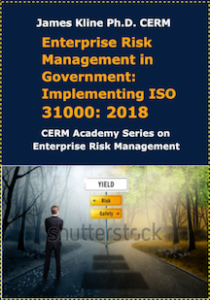 In several pieces for Insights, I have discussed the decline of ISO 9001 certifications, the internal and financial problems ASQ is experiencing and the implications for the quality profession. Recently I was on the ASQ website. There are several references to Quality 4.0. This article will look at Quality 4.0 and its implications for the Quality Profession. It will also provide an update on ASQ’s financial problems and the possibility it will declare bankruptcy.
In several pieces for Insights, I have discussed the decline of ISO 9001 certifications, the internal and financial problems ASQ is experiencing and the implications for the quality profession. Recently I was on the ASQ website. There are several references to Quality 4.0. This article will look at Quality 4.0 and its implications for the Quality Profession. It will also provide an update on ASQ’s financial problems and the possibility it will declare bankruptcy.
The Fourth Industrial Revolution
Quality 4.0 comes from the idea that globally the world is in the fourth industrial revolution. The term Industry 4.0 was coined in 2011 at the Hannover Fair. Industry 4.0 is often called the Fourth Industrial Revolution. “By enabling “smart factories”, the fourth industrial revolution creates a world in which virtual and physical systems of manufacturing globally cooperate with each other in a flexible way.” (1) Quality 4.0 represents the quality practices associated with Industry 4.0.
The expectation is that the Internet of Things will combine with robotics and big data to increase the automation of industrial activities. A 2018 ASQ study noted the following changes Industry 4.0 will bring to the shop room floor.
- Integrated cyber-physical interfaces automate working environments.
- Automated processes deal with end to end systems.
- Humans serve only in positions where human judgement cannot be automated and human interactions cannot be simulated.
- Machines learn to learn (artificial intelligence).
The study found that 16% of U.S. organizations have implemented Industry 4.0. (2) This can be compared with 21% for European countries. The implementation of Industry 4.0 will be increased as countries bring back operations from China.
Quality 4.0
ASQ’s 2018 study lists the four industrial ages along with their characteristics. Table 1 below shows the Industry 3.0 and 4.0 characteristics and the associated Quality 3.0 and 4.0 characteristics.
| Industry 3.0 (1940-95) | Quality 3.0 |
| Computer power provide to workers to
Increase productivity |
Quality is business imperative.
|
| Use of Information and communications
Technology drives improvement |
Continual improvement is applied. |
| Human participation in workplace
declines |
Gains in productivity occur by stabilizing highly efficient processes, standardizing work and involving all workers in the activities that crat quality. |
| Stand along robotic systems replace manual
Work. |
Standardization activities (ISO 9001) and achieving business excellence through organization wide assessment (such as the Baldridge Criteria for Performance Excellence) emerge. |
| Industry 4.0 (1995-present) | Quality 4.0 |
| Integrated cyber-physical interfaces automate working environments. | Digitization is used to optimize signal feedback and process adjustment, and adaptive learning supports self-induced system corrections. |
| Automated processes deal with end-to-end systems. | Quality shifts its control-oriented focus from the process operators to the process designers. |
| Humans serve only in positions where human judgement cannot be automated and human interactions cannot be simulated. | Machines learn how to self-regulate and manage their own productivity and quality. |
| Machines learn to learn (artificial intelligence). | Human performance is essential; the emphasis shifts from production to system design and integration with the business system. |
Table 1
Table 1 shows that there is a clear change in the approach to quality between Industry 3.0 and 4.0. In Industry 3.0, quality is a dominant characteristic in the production process. Industry 4.0 sees the quality orientation shift from a control-oriented focus, to process design and integration with business systems. It reflects the continual development of computer and internet technology.
Implications for Quality Profession
The shift occurring on the production line, is having a significant impact on the quality profession. One fundamental consequence is that robots will be conducting 100% quality inspections. Except in rare situations, the sampling of products for quality control purposes will not be needed. This will result in the reduction of quality inspectors and the need for certifications like ISO 9001.
The ASQ study emphasizes that the quality profession must move from data analyst to “data wrangler”. This is to be accomplished by engaging with new technologies. Fortunately, quality professionals are well positioned because they have deep skills in several areas Industry 4.0 will emphasize. These are”
- Systems thinking
- Data-driven decision making
- Leadership for organizational learning.
- Statistics
While this is a nice list, it is difficult to see how this list helps quality professionals upgrade their skills. “Systems thinking” is the name of an academic field. The field has a broad reach. This reach is beyond the confines of the quality management system. It is unclear if the quality professional will need to have a degree in Systems Thinking or a specified number of courses.
Data-driven decision making is something which every professional can understand. But what is a “data wrangler”? What does it mean for professional development?
As for “leadership for organizational learning”, within an organization quality professional are generally low on the decision-making ladder. Their leadership impact will therefore be limited. As for “organizational learning”, what it means and how quality professionals are to contribute is not well defined in ASQ’s report. Further, when quality professionals go outside the bounds of the quality management system, they are outside their area of expertise. When they step outside their area of expertise, it becomes harder to keep other professionals from encroaching on those areas.
That statistical analysis is considered an important skill for Management 4.0 is a positive for the quality profession. Most quality professionals have a solid understanding and background in statistical analysis. However, it is unclear the level of sophistication that will be needed for Industry 4.0. Is a Green Belt level sufficient, or should the practitioner have a Black Belt?
What about the Manager of Quality/Organizational Excellence (MQ/OE) certification? When a comparison is made between the four skills listed above and the body of knowledge (BoK) for the MQ/OE there is considerable alignment. The BoK of MQ/OE emphasizes Leadership, Statistical Analysis, and Change Management. Given the alignment, perhaps the MQ/OE is the only certification the quality practitioner operating in Industry 4.0 needs.
The level of sophistication for all other skills will be provided by management. The study found that companies implementing Industry 4.0 provide skill upgrades. If this policy continues, the combined effect of robotics and in-house training, may make many of the quality certifications offered by professional organizations like ASQ, superfluous.
ASQ Status
With only 16% of U.S. companies and 21% of European companies having implemented Industry 4.0, its implementation is a long-term problem. A problem with which quality professionals must come to terms. The short-term problem is the decline in ISO 9001 certifications and the impact of COVID – 19 on economic activity worldwide.
For instance, in a July 15, 2020 communication, Ann Jordan, the Interim CEO of ASQ, announced that ASQ revenue had dropped 45%. The projected deficit for 2020 will probably exceed $8 million. As a result, some staff has been laid off and others had their hours reduced by 30%. (3)
The projected red ink combined with ASQ’s internal strife, the decline in ISO 9001 certifications and the COVID – 19 impact, has led to speculation that ASQ will end up filing for bankruptcy. While the possibility of bankruptcy cannot be confirmed, the long-term viability of ASQ is problematic.
I discussed some of this in an earlier piece. But there are some updates. ASQ divided itself into two entities. One is ASQ Excellence, a for profit entity. The second is membership oriented. In 2020, ASQ suspended all funding to the Sections and Divisions. All ASQ intellectual properties and $8.6 million in revenue was transferred to ASQ Excellence.
Membership activity has taken a back seat. With no resources, the Chapters and Divisions are drying up. With no Chapters to facilitate the attraction and development of new members, membership will continue to decline. As it declines, this revenue stream for ASQ will contribute less to its bottom line.
Compounding the loss of membership revenue, is the impact on ASQ Excellence due to COVID – 19. ASQ Excellence is the training and certification arm of ASQ. Because of the national wide lock down, most businesses have lost revenue. While it is hoped that a recovery will occur in the fourth quarter of 2020, it is doubtful that training will be a priority. This lack of priority will most likely extend well into 2022. The likely reduction in training revenue, combined with the reduction in quality positions associated with Industry 4.0, places ASQ Excellence in a less than viable position.
End Notes:
- Schwab, Klaus, 2016, “The Fourth Industrial Revolution”, World Economic Forum, Geneva Switzerland, page 7.
- ASQ, 2018, “Quality 4.0”, https://org/quality-resources/quality-4-0.
- Burrows, Dan, note on Linked In Restore ASQ group, July17,2020..
BIO
 James J. Kline is a Senior Member of ASQ, a Six Sigma Green Belt, a Manager of Quality/Organizational Excellence, and a Certified Enterprise Risk Manager. He has work for federal, state, and local government. He has over ten year’s supervisory and managerial experience in both the public and private sector. He has consulted on economic, quality and workforce development issues for state and local governments. He has authored numerous articles on quality in government and risk analysis. His book “Enterprise Risk Management in Government: Implementing ISO 31000:2018” is available on Amazon. He is the principle of JK Consulting. jeffreyk12011@live.com
James J. Kline is a Senior Member of ASQ, a Six Sigma Green Belt, a Manager of Quality/Organizational Excellence, and a Certified Enterprise Risk Manager. He has work for federal, state, and local government. He has over ten year’s supervisory and managerial experience in both the public and private sector. He has consulted on economic, quality and workforce development issues for state and local governments. He has authored numerous articles on quality in government and risk analysis. His book “Enterprise Risk Management in Government: Implementing ISO 31000:2018” is available on Amazon. He is the principle of JK Consulting. jeffreyk12011@live.com